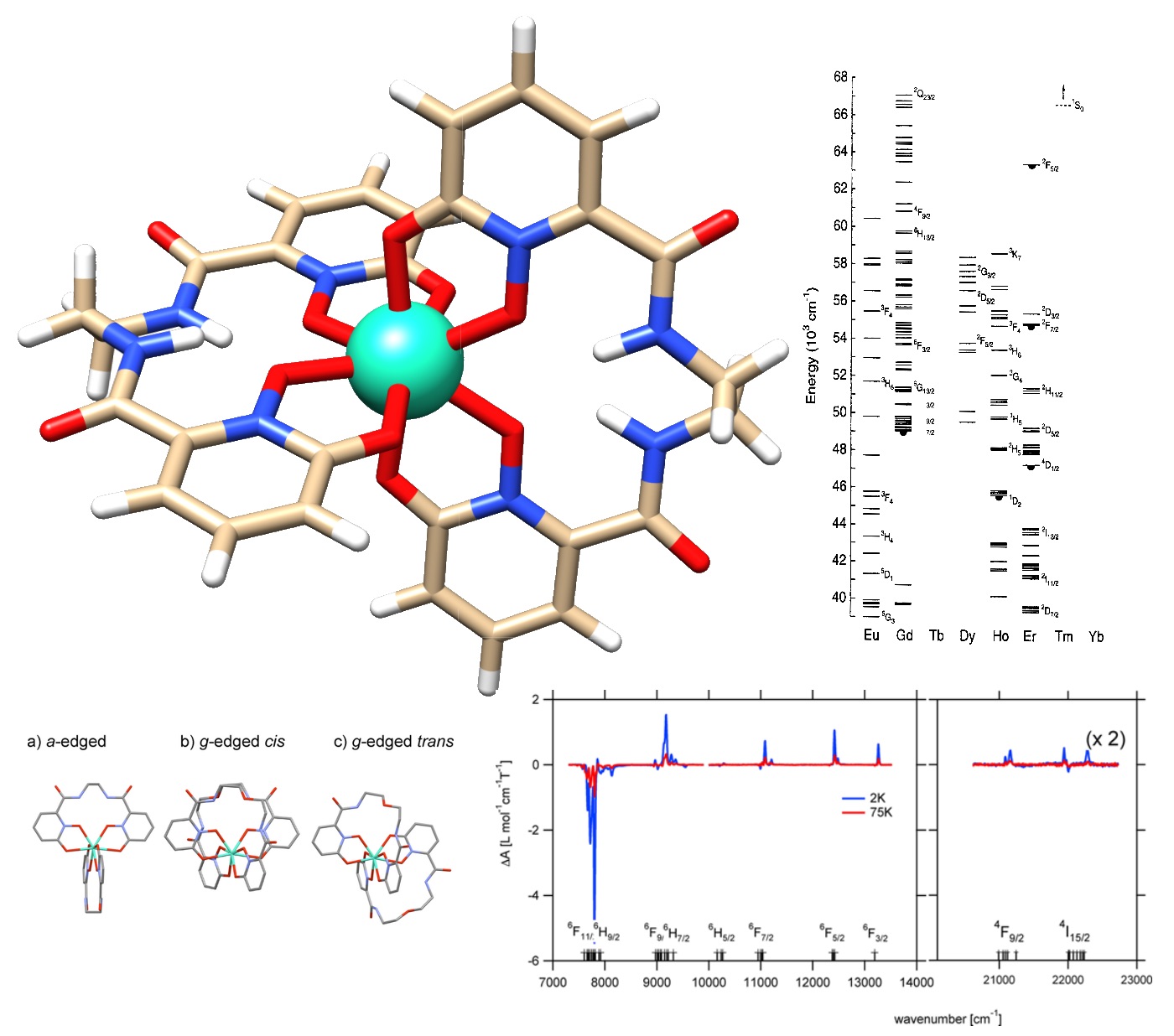
Shrinking the size of a computer bit to a single molecule is the stuff of dreams for anyone involved in computing.
Basically, it would mean the ability to store a lot more data in the same amount of space.
This is the grand, hypothetical future application of the research UQ PhD student and computational chemist Blake Connolly has undertaken.
Mr Connolly is investigating the smallest practical unit for magnetic memory, Single Molecule Magnets (SMM), a potential future building block for quantum computers.
Using magnetochemistry, the study of the magnetic properties of chemical compounds, he is examining the design and theory of SMM, trying to understand more about the effect of geometry on their behaviour.
“Through combining simulations and experimental results, we can examine what components of the molecule (i.e. the metal, the ligands or the geometry) influence the magnetic behaviour and we can aid in the design of better SMMs,” said Mr Connolly.
Better SMMs could lead to “crazy data density” with molecule-sized computer bits.
In his research, Mr Connolly uses ORCA, quantum chemistry software that is available free-of-charge for academic use. ORCA is a general-purpose tool with specific emphasis on spectroscopic properties of open-shell molecules.
Due to its user-friendly style, ORCA is a helpful tool not only for computational chemists, but also for chemists, physicists and biologists who are interested in developing the full information content of their experimental data with the help of calculations.
RCC/QCIF eResearch Analyst Dr Marlies Hankel installed ORCA on three of RCC’s high-performance computers, namely Tinaroo, Awoonga and FlashLite, and takes care of version updates. This means the software is readily available to UQ researchers on powerful computers that have enough capacity and numeric performance to solve big problems.
In terms of computational chemistry software, RCC also supports Gaussian. ORCA is similar to Gaussian but it uses Message Passing Interface (MPI) in its standard version. This enables users to use multiple nodes to speed up their Density Functional Theory (DFT) calculations, a computational quantum mechanical modelling method used to investigate the electronic structure of many-body systems, particularly atoms and molecules. This makes ORCA particularly suited to Tinaroo.
Mr Connolly used all three of the aforementioned RCC HPC offerings. He used 12 cores on Awoonga, 24 to 48 cores on Tinaroo and a total of 48 cores on FlashLite.
“Each HPC was suited towards different calculations, which allowed for calculations on multiple series of complexes to be performed simultaneously and efficiently. The HPCs allowed for the calculation of the required properties within a fraction of the time they would take on a desktop PC,” said Mr Connolly.
He was particularly impressed with FlashLite, an HPC designed explicitly for Australian researchers conducting data-intensive science and innovation.
“Without the flash storage and memory of FlashLite, performing my calculation would have been impossible for traditional HPCs due to the calculation, sorting and storage of vast quantities of integrals. FlashLite allowed for the correction to each state to be calculated in about an hour compared to being unable to correct one state on other HPCs. Without FlashLite, calculation would not have happened.”
With a heavy HPC workload ahead of him, Mr Connolly elected to attend one of RCC’s monthly “Introduction to HPC” workshops in April this year.
“I already had an understanding about HPC from previous experience, however the introduction by RCC allowed for a deeper understanding about the module system and the syntax of the PBS scheduler [the Portable Batch System used to schedule jobs],” he said.
Overall, Mr Connolly says RCC has been “a fantastic partner in my research.”
“The knowledge and the facilities that RCC provide have allowed more accurate methods to be performed on larger and more complex structures approaching experimental measurements. I would highly encourage anybody requiring computational resources for research to contact the RCC and discuss possible solutions to their problem.”
If you would like to know more about ORCA, please contact RCC’s Dr Marlies Hankel: m.hankel@uq.edu.au. For general enquiries about RCC’s HPCs, please contact the RCC Support Desk: rcc-support@uq.edu.au.



